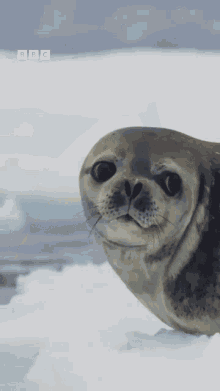- My Forums
- Tiger Rant
- LSU Recruiting
- SEC Rant
- Saints Talk
- Pelicans Talk
- More Sports Board
- Winter Olympics
- Fantasy Sports
- Golf Board
- Soccer Board
- O-T Lounge
- Tech Board
- Home/Garden Board
- Outdoor Board
- Health/Fitness Board
- Movie/TV Board
- Book Board
- Music Board
- Political Talk
- Money Talk
- Fark Board
- Gaming Board
- Travel Board
- Food/Drink Board
- Ticket Exchange
- TD Help Board
Customize My Forums- View All Forums
- Show Left Links
- Topic Sort Options
- Trending Topics
- Recent Topics
- Active Topics
Started By
Message

If a Killer Whale brings you a fish just say thank you (lol)
Posted on 7/9/25 at 4:46 pm
Posted on 7/9/25 at 4:46 pm
Killer Whales bring fish to people
SCIENCE
Killer Whales Are Giving Fish to Humans Worldwide – What’s Going on?
BY AMERICAN PSYCHOLOGICAL ASSOCIATIONJULY 8, 202571 COMMENTS4 MINS READ
Orca Killer Whale Mouth Open Close Up
Killer whales have been repeatedly seen offering food to humans in the wild, a behavior that’s baffling researchers. The whales often lingered or made second attempts, raising questions about their intent—and their capacity for cross-species connection.. Shutterstock
Across oceans and decades, killer whales have been caught doing something no one expected—offering food to humans.
From California to New Zealand, 34 documented incidents reveal orcas bringing fish, rays, and squid to people in the water, on boats, and even onshore. Scientists say this behavior, usually seen between whales as a bonding act, may show a surprising willingness to connect with humans. In some cases, the whales even tried more than once after being turned down, as if waiting for a response. What drives this mysterious generosity? Researchers think it could be cultural, playful—or a sign of something much deeper.
Global Instances of Orcas Gifting Food to Humans
Over a span of 20 years, scientists from Canada, New Zealand, and Mexico documented 34 surprising encounters in which wild orcas appeared to offer food to humans. These remarkable interactions happened across the globe—from the waters of California and New Zealand to Norway and Patagonia.
“Orcas often share food with each other – it’s a prosocial activity and a way that they build relationships with each other,” said study lead author Jared Towers, of Bay Cetology in British Columbia, Canada. “That they also share with humans may show their interest in relating to us as well.”
The research was published in the Journal of Comparative Psychology.
The study, published in the Journal of Comparative Psychology, brings together firsthand observations from researchers Jared Towers, Ingrid Visser, PhD (Orca Research Trust, New Zealand), and Vanessa Prigollini (Marine Education Association, Mexico).
They analyzed each case carefully, whether it came from their own experiences or from reports by others. In 11 of the encounters, the people were in the water. In 21 cases, they were on boats. In two, they were standing on the shore. Some of these moments were captured in photos and videos, while others were shared through detailed interviews.
Analyzing Two Decades of Human–Orca Food Sharing
To be included in the analysis, the incidents had to meet strict criteria: in each case, the whales had to have approached the people on their own (the people could not have approached the whales closely) and dropped the item in front of them. In all but one of the cases, the orcas waited to see what would happen after they made the offering, and in seven cases, they tried more than once to offer the food, after the people initially refused it.
Domesticated animals, such as dogs and cats, sometimes offer food to humans, but this research marks some of the first detailed descriptions of similar behavior in non-domesticated animals. It makes sense, according to the researchers, because orcas are intelligent and social animals that use food sharing as a way to build relationships with kin and unrelated individuals. They also often hunt prey much larger than themselves, and thus sometimes have food to spare.
Evolutionary Insights into Orca Prosocial Behavior
“Offering items to humans could simultaneously include opportunities for killer whales to practice learned cultural behavior, explore or play, and in so doing learn about, manipulate or develop relationships with us,” the researchers wrote. “Giving the advanced cognitive abilities and social, cooperative nature of this species, we assume that any or all of these explanations for, and outcomes of such behavior are possible.”
Reference: “Testing the Waters: Attempts by Wild Killer Whales (Orcinus orca) to Provision People (Homo sapiens)” by Jared R. Towers email the author, Ingrid N. Visser and Vanessa Prigollini, 2025, Journal of Comparative Psychology.
So not all Orcas are sail boat sinking assholes. Lol
SCIENCE
Killer Whales Are Giving Fish to Humans Worldwide – What’s Going on?
BY AMERICAN PSYCHOLOGICAL ASSOCIATIONJULY 8, 202571 COMMENTS4 MINS READ
Orca Killer Whale Mouth Open Close Up
Killer whales have been repeatedly seen offering food to humans in the wild, a behavior that’s baffling researchers. The whales often lingered or made second attempts, raising questions about their intent—and their capacity for cross-species connection.. Shutterstock
Across oceans and decades, killer whales have been caught doing something no one expected—offering food to humans.
From California to New Zealand, 34 documented incidents reveal orcas bringing fish, rays, and squid to people in the water, on boats, and even onshore. Scientists say this behavior, usually seen between whales as a bonding act, may show a surprising willingness to connect with humans. In some cases, the whales even tried more than once after being turned down, as if waiting for a response. What drives this mysterious generosity? Researchers think it could be cultural, playful—or a sign of something much deeper.
Global Instances of Orcas Gifting Food to Humans
Over a span of 20 years, scientists from Canada, New Zealand, and Mexico documented 34 surprising encounters in which wild orcas appeared to offer food to humans. These remarkable interactions happened across the globe—from the waters of California and New Zealand to Norway and Patagonia.
“Orcas often share food with each other – it’s a prosocial activity and a way that they build relationships with each other,” said study lead author Jared Towers, of Bay Cetology in British Columbia, Canada. “That they also share with humans may show their interest in relating to us as well.”
The research was published in the Journal of Comparative Psychology.
The study, published in the Journal of Comparative Psychology, brings together firsthand observations from researchers Jared Towers, Ingrid Visser, PhD (Orca Research Trust, New Zealand), and Vanessa Prigollini (Marine Education Association, Mexico).
They analyzed each case carefully, whether it came from their own experiences or from reports by others. In 11 of the encounters, the people were in the water. In 21 cases, they were on boats. In two, they were standing on the shore. Some of these moments were captured in photos and videos, while others were shared through detailed interviews.
Analyzing Two Decades of Human–Orca Food Sharing
To be included in the analysis, the incidents had to meet strict criteria: in each case, the whales had to have approached the people on their own (the people could not have approached the whales closely) and dropped the item in front of them. In all but one of the cases, the orcas waited to see what would happen after they made the offering, and in seven cases, they tried more than once to offer the food, after the people initially refused it.
Domesticated animals, such as dogs and cats, sometimes offer food to humans, but this research marks some of the first detailed descriptions of similar behavior in non-domesticated animals. It makes sense, according to the researchers, because orcas are intelligent and social animals that use food sharing as a way to build relationships with kin and unrelated individuals. They also often hunt prey much larger than themselves, and thus sometimes have food to spare.
Evolutionary Insights into Orca Prosocial Behavior
“Offering items to humans could simultaneously include opportunities for killer whales to practice learned cultural behavior, explore or play, and in so doing learn about, manipulate or develop relationships with us,” the researchers wrote. “Giving the advanced cognitive abilities and social, cooperative nature of this species, we assume that any or all of these explanations for, and outcomes of such behavior are possible.”
Reference: “Testing the Waters: Attempts by Wild Killer Whales (Orcinus orca) to Provision People (Homo sapiens)” by Jared R. Towers email the author, Ingrid N. Visser and Vanessa Prigollini, 2025, Journal of Comparative Psychology.
So not all Orcas are sail boat sinking assholes. Lol
Posted on 7/9/25 at 4:48 pm to TutHillTiger
Or are you supposed to give them something back?
Posted on 7/9/25 at 4:50 pm to TutHillTiger
The orca salmon hat thing was funny.
LINK
LINK
quote:
Last month, scientists and whale watchers spotted orcas (Orcinus orca) in South Puget Sound and off Point No Point in Washington State swimming with dead fish on their heads. This is the first time they've donned the bizarre headgear since the summer of 1987, when a trendsetting female West Coast orca kickstarted the behavior for no apparent reason.
Posted on 7/9/25 at 4:52 pm to TutHillTiger
They are just baiting you for that moment when you are off your guard and they just snatch you up and take you away and you disappear forever.
Posted on 7/9/25 at 4:54 pm to beerJeep
Loved the salmon hats. They really are so fascinating. One of my favorite animals on the planet.
Posted on 7/9/25 at 4:58 pm to TutHillTiger
quote:
Domesticated animals, such as dogs and cats, sometimes offer food to humans
My pets are cheap motherfrickers!
Posted on 7/9/25 at 5:00 pm to TutHillTiger
They give you a fish, you give them a steak.
Posted on 7/9/25 at 5:03 pm to TutHillTiger
Haven’t killer whales been hunting boats lately?
Are these mfers baiting us now?
Are these mfers baiting us now?
Posted on 7/9/25 at 5:06 pm to TutHillTiger
I feed wild foxes and they occasionally bring me rabbits. One of my buddies thinks they want me to cook the rabbits for them lol
Posted on 7/9/25 at 5:11 pm to Tr33fiddy
quote:
One of my buddies thinks they want me to cook the rabbits for them lol
Your buddy may be right. I think you should try it. Nothing fancy just skin it and lightly season with salt and pepper or Tony's and grill it. They would love it.
Posted on 7/9/25 at 5:16 pm to TutHillTiger
We’re like pets to them.
Posted on 7/9/25 at 5:19 pm to TutHillTiger
They’re baiting them so they can eat the humans.
Posted on 7/9/25 at 5:34 pm to TutHillTiger
Guaranteed that Gutfeld! will make a joke about this using The View.
Posted on 7/9/25 at 5:34 pm to ReauxlTide222
quote:
Haven’t killer whales been hunting boats lately?
Are these mfers baiting us now?
Bet your sweet arse.
The cetaceans are rising up.
So long and thanks for all the fish, indeed.
Posted on 7/9/25 at 5:51 pm to GoCrazyAuburn
Posted on 7/9/25 at 5:52 pm to wallowinit
quote:
They are just baiting you for that moment when you are off your guard and they just snatch you up and take you away and you disappear forever.
fricking this right here. I’ve seen enough Planet Earth and Frozen Planet to know that those frickers are brilliant and cunning AF.


Popular
Back to top

 15
15













